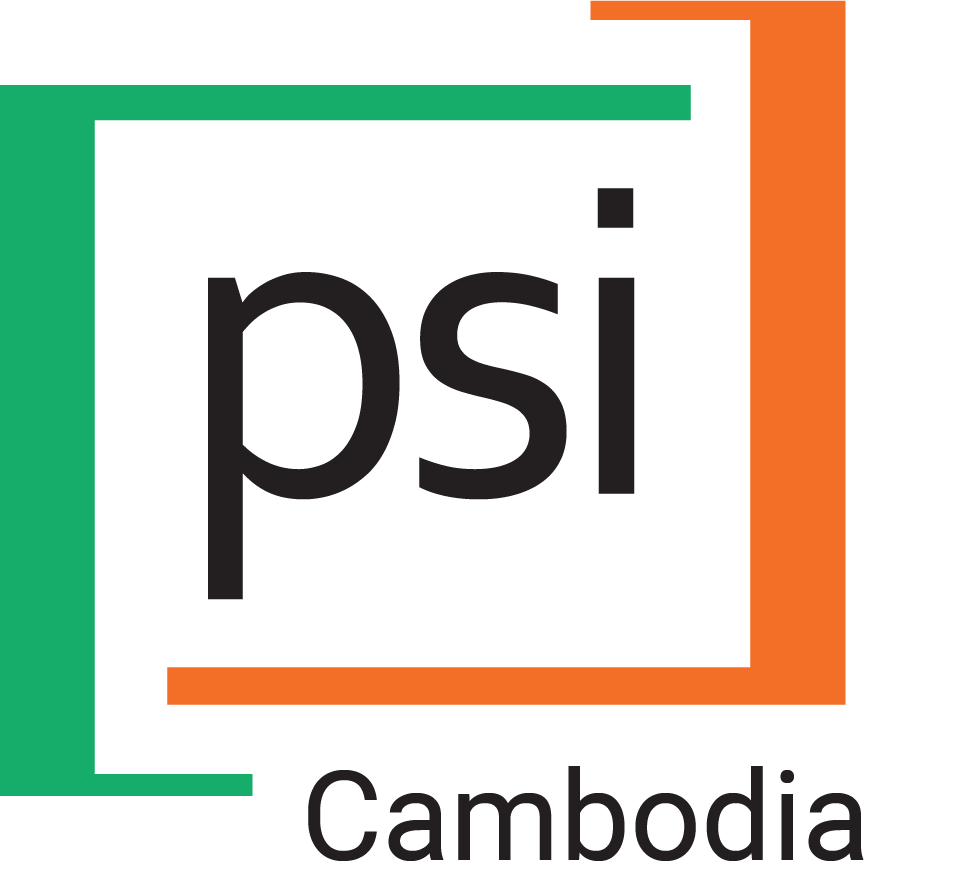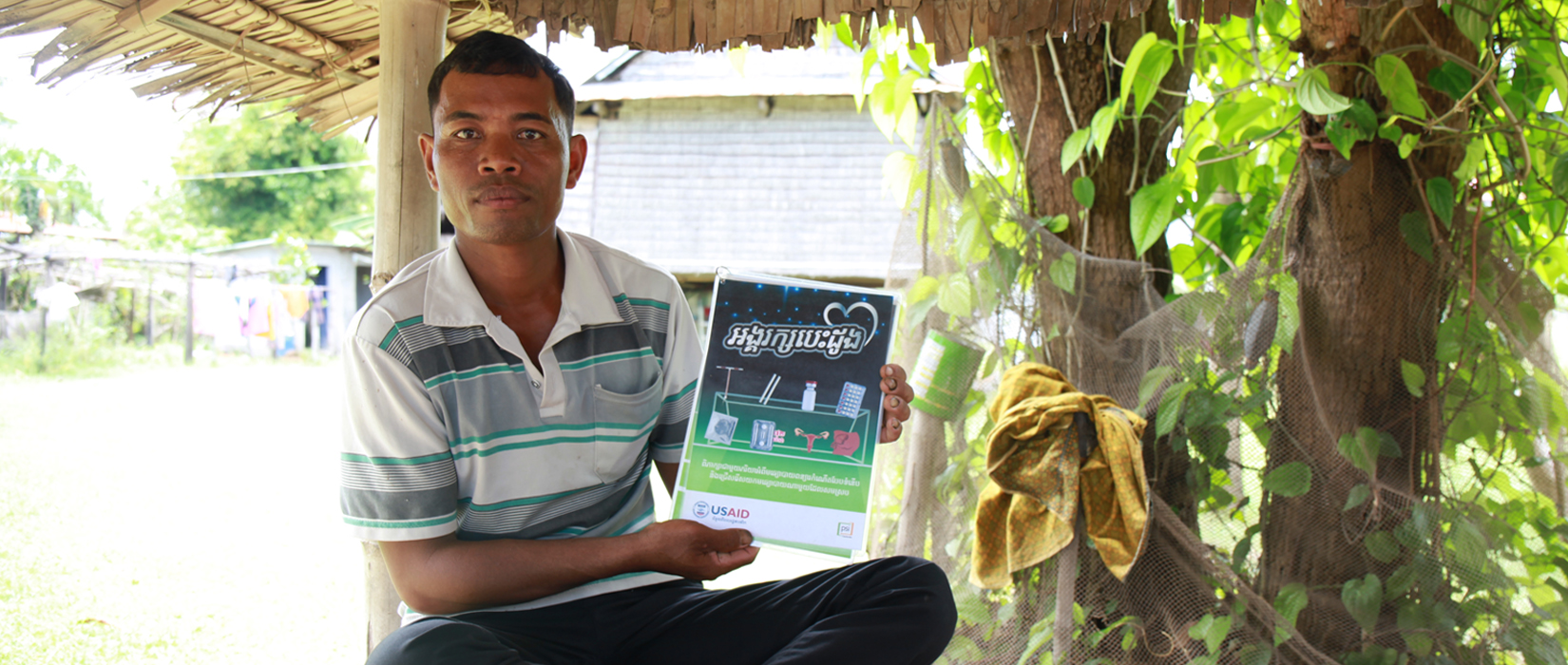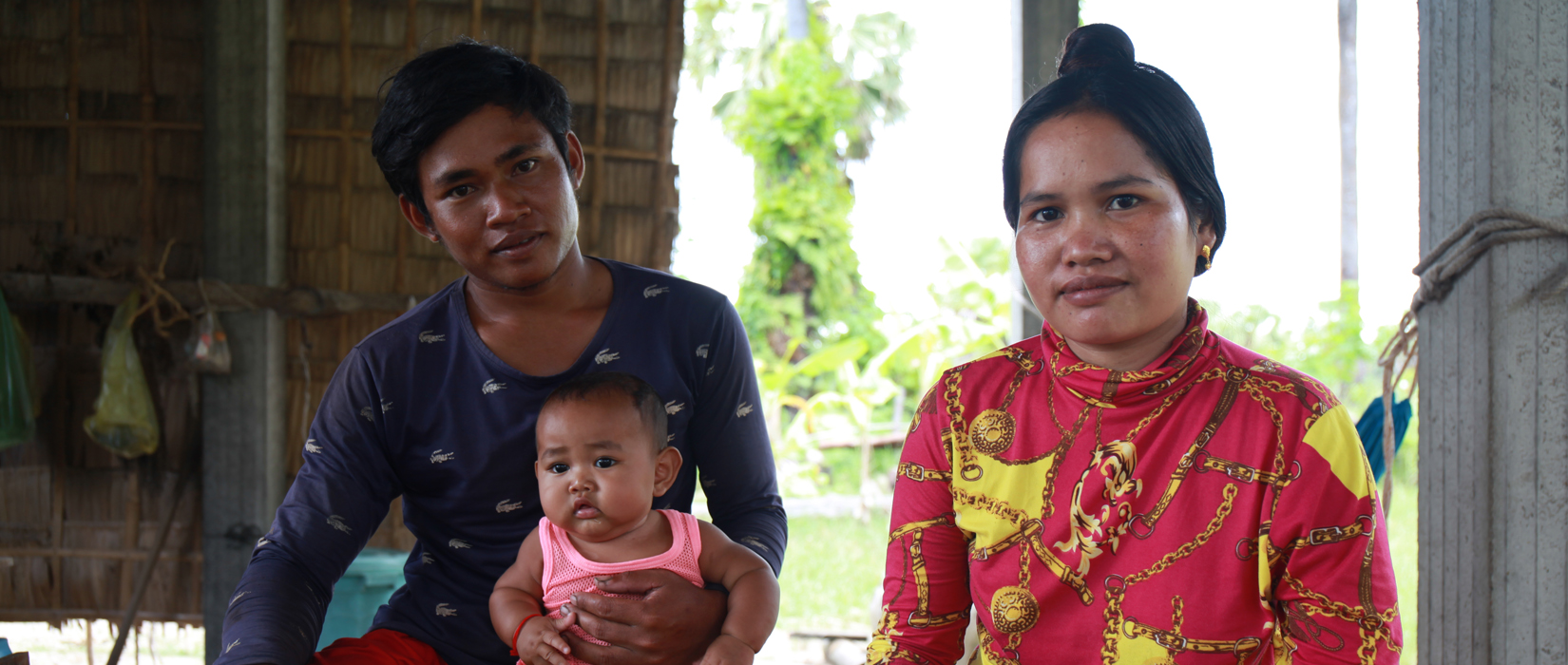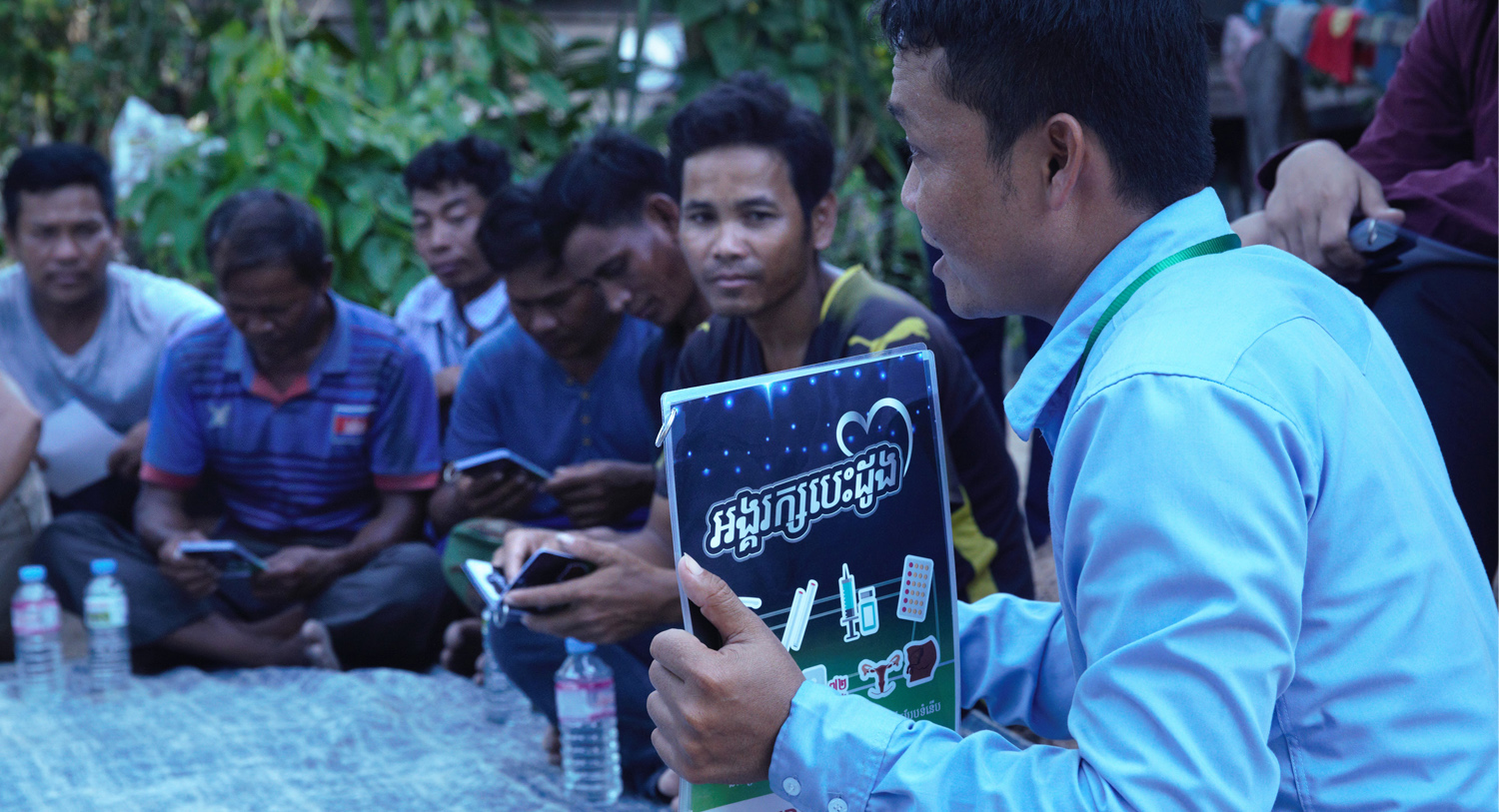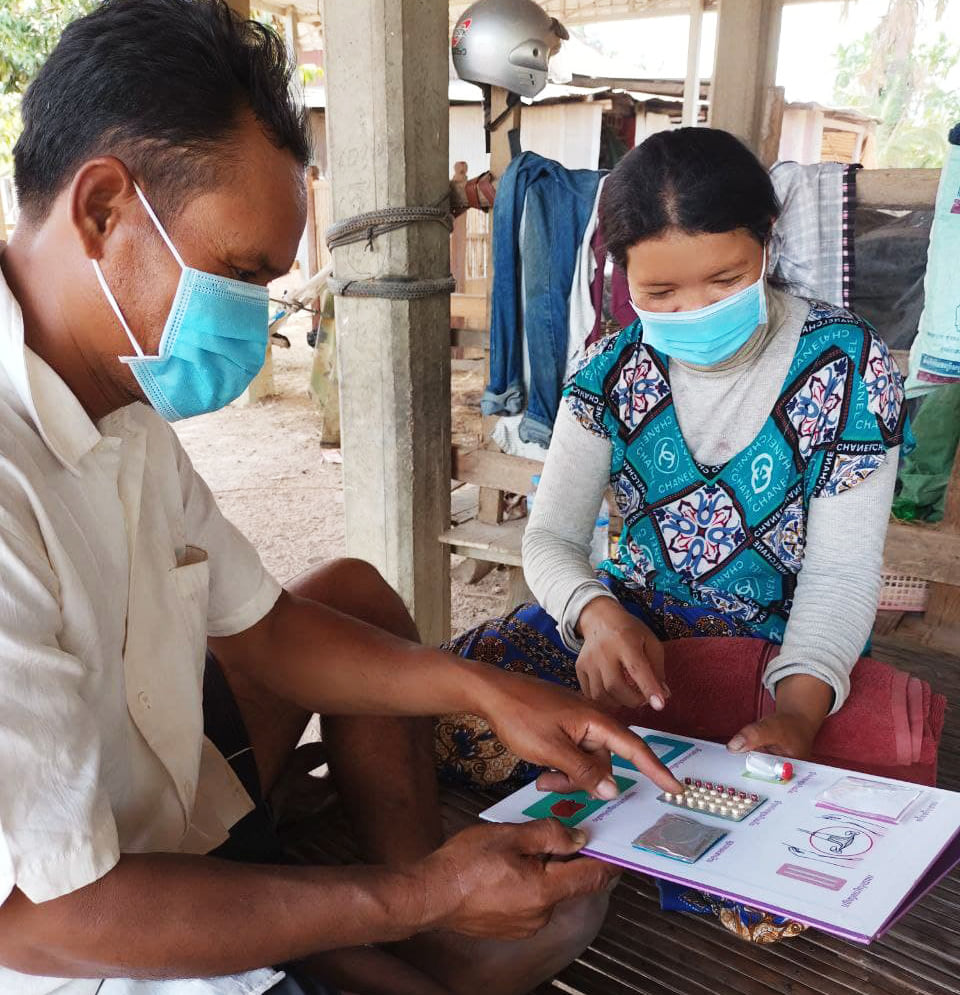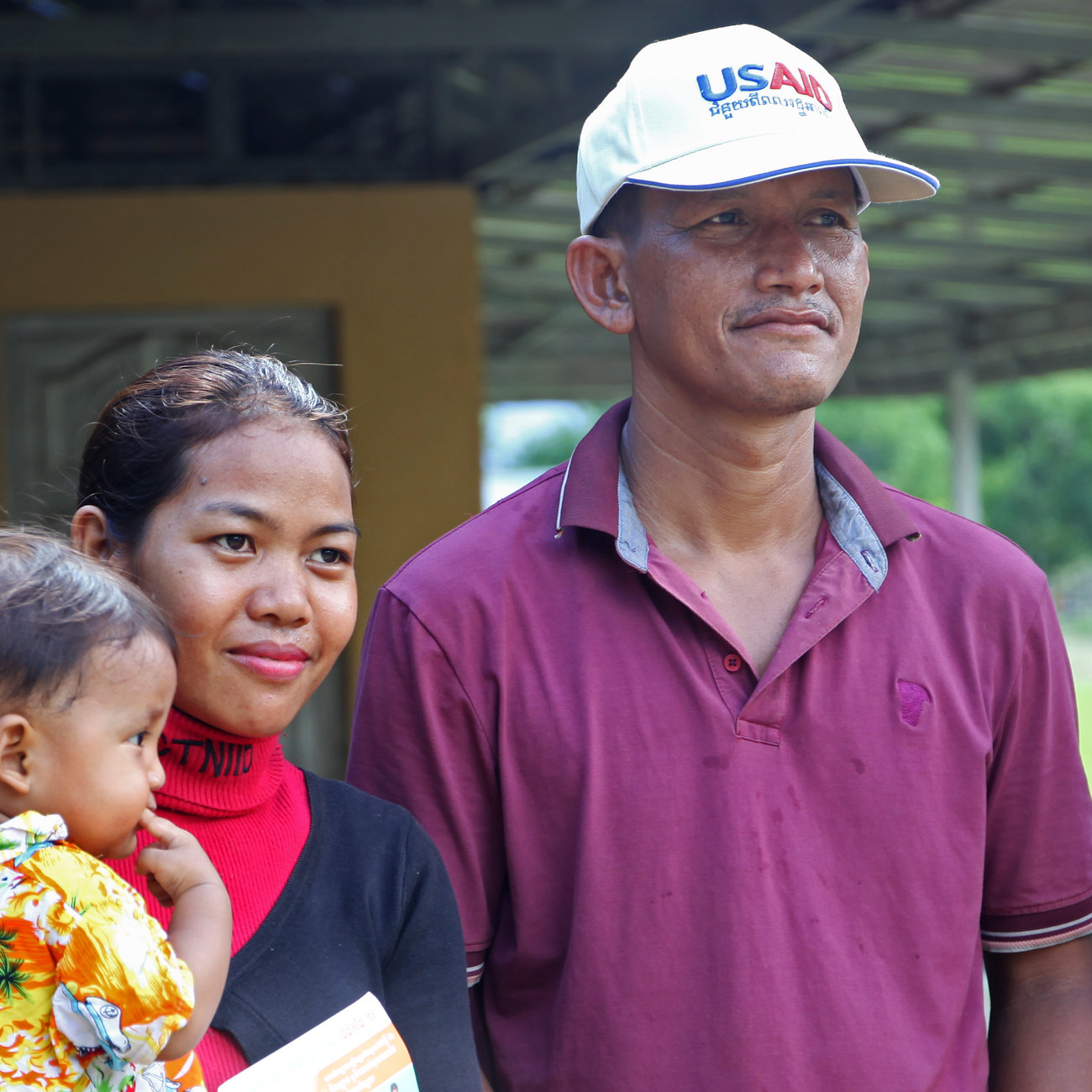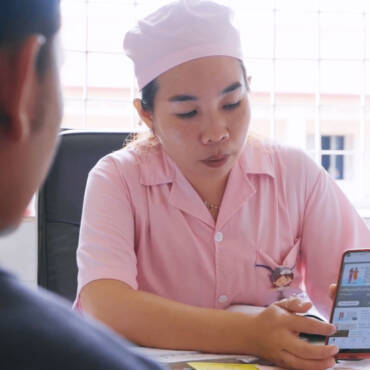Family Planning Is A Family Decision: Engaging Men in Family Planning Interventions
“I think that it is a good session because learning about contraception helps remove misunderstandings (about contraception) between men and women and it encourages us to discuss both the traditional and modern methods (of family planning).” – Chhorn Srieng (Battambang province)
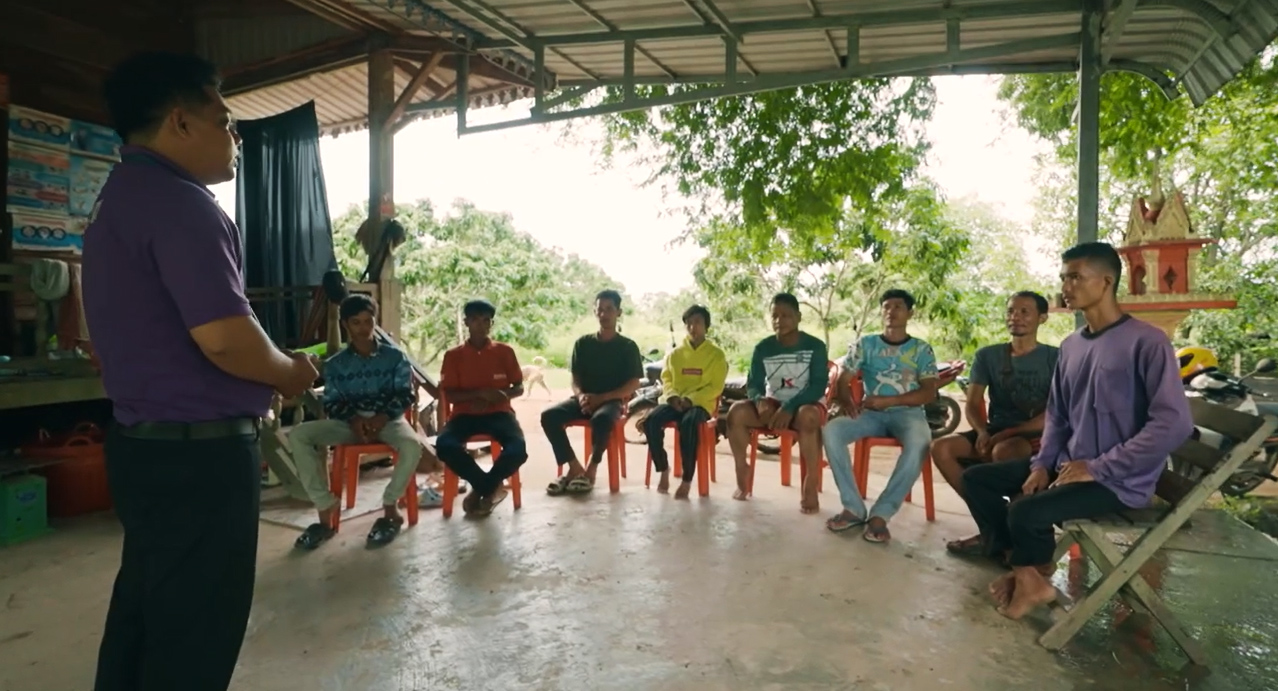
What is “family planning”? Family planning (FP) is the use of contraceptive methods to limit the number of (or add birth-space between the) children that a couple has. It is beneficial because it helps decrease the number of unwanted pregnancies, and can also reduce neonatal, infant, child, and maternal mortality (Anbensu, 2022). Studies have also shown that family planning leads to expanded education and job opportunities for women, increased empowerment, a ultimately, sustainable economic development for countries.
Promoting Healthy Behaviors (PHB) Activity is a USAID-funded project in Cambodia taking place from May 2018 to June 2025. The goal of the project’s FP program include: 1) encouraging the use of modern contraceptive methods (short- and long-term methods including condoms, the birth control pill, intrauterine devices (IUDs), the implant, and emergency 24-hour contraceptive pills), 2) increasing awareness about postpartum modern family planning, and 3) switching from traditional methods (like the pull-out method) to modern methods (MM).
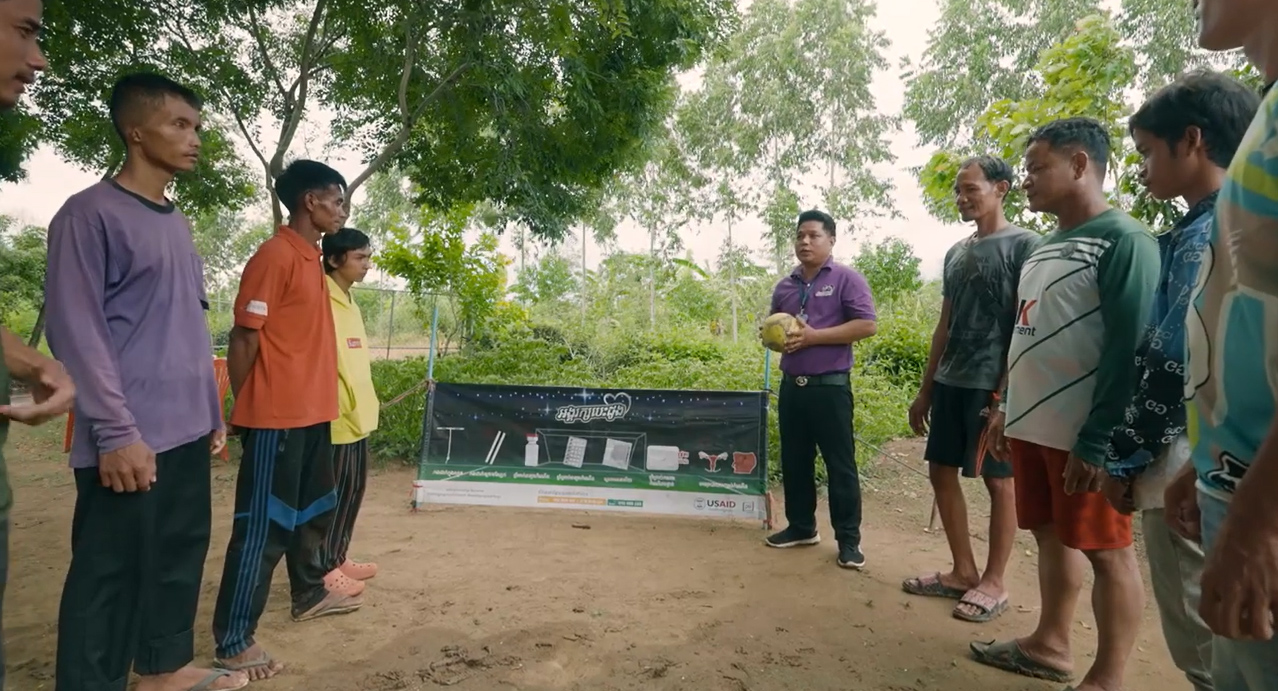

Some men identify family planning as a “woman’s responsibility”. There are many reasons for this, but two of the main ones include the fact that most contraceptives are female-centered, and historically, most reproductive health and family planning interventions have targeted women. However, studies have shown that actively involving men in reproductive health programs increases the likelihood of effectiveness. Including both men and women in the conversation about family planning increases shared decision making and can allow for increased awareness and knowledge within each couple. Couples who have discussions about FP are more likely to use contraception and have fewer children. Ultimately, it helps to empower both men and women to take control of their reproductive and economic future.
In 2019, PHB completed the “High responsibility for healthy lives: PHB gender analysis & action plan”. Through their analysis PHB found that gender roles can exist as a “source of pressure for many men and limit women’s agency, time, and leadership”. They also found that women’s decision-making power has increased, with respect to the family, but there was still a need for more male engagement in relation to family planning. Data also showed that “unmarried women, particularly in the provinces, face restraints on their freedom of movement and contraceptive knowledge due to norms that say they should be protected”. There were also mixed findings on the decisions related to family planning, with half of the focus groups saying that “women and men discuss childbearing and decide together, but others report these decisions are more directed by men”.
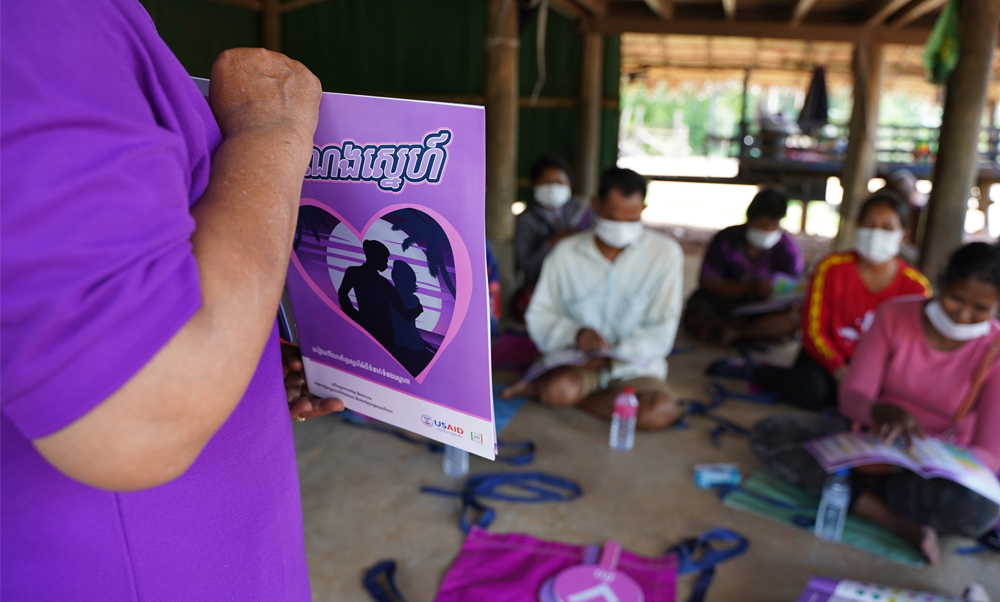
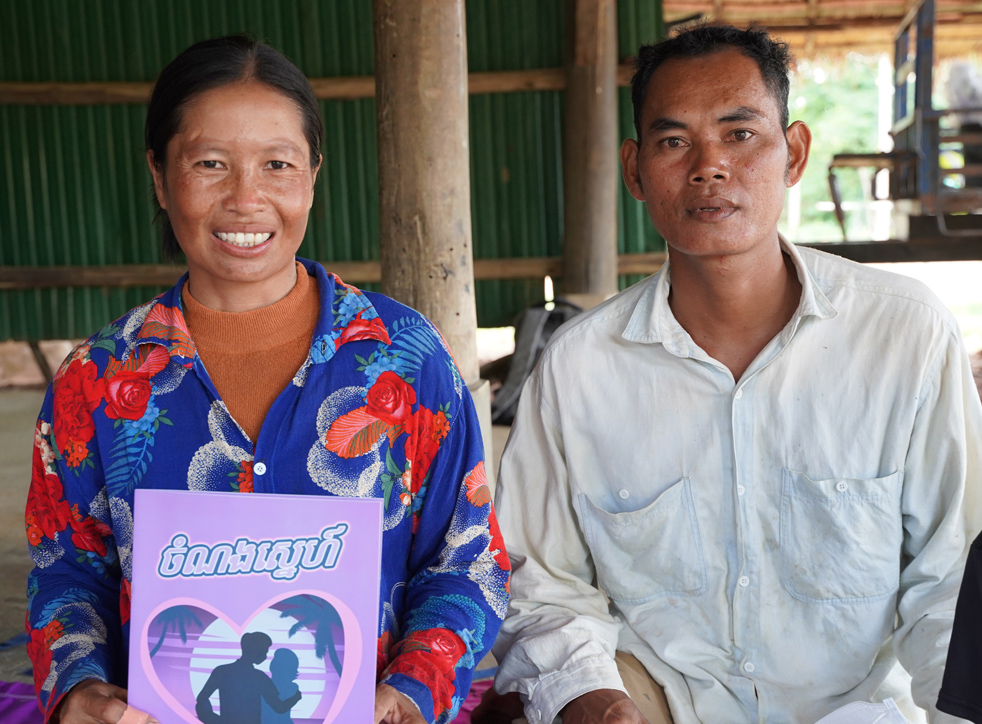
Given this gender and family planning landscape, it was important to the PHB team to design interventions that were inclusive and encouraged dialogue that increased women’s agency. Thus, the “Heart Protector” and “Loving Relationship” interventions were designed to integrate both men and women into family planning activities. The goal of integration was to facilitate discussions about women’s negotiating power and to normalize couples’ communication about family planning. The goal is to bring awareness and to start a conversation about modern contraceptive methods, but also about reproductive intentions, family size, and planning a couple’s future in general.
Loving Relationship is a more conventional Family Planning intervention – focused on couples connecting to one another, communicating openly, and starting a dialogue about modern methods of contraception. The program team designed a series of tools to use in the intervention – including educational pamphlets, real product samples, and take-home materials to continue the conversation in private.
Heart Protector is an innovative intervention designed to engage men in topics related to family planning. Run by an interpersonal communicator (IPC,) it involves getting together a group of men to talk about modern methods of contraception and ultimately, making a commitment to having a conversation with their partner about family planning. The title “Heart Protector” plays into the role of men as “protectors” of their partners and their families. The intervention urges men to not only think about physical protection from harm, but also the steps necessary to protect themselves, and their partners, from unwanted pregnancy and STIs.
“I received some information about MM from a doctor at the health center after we had our first child 13 years ago and decided to use condoms until the appropriate time to have our second child three years ago. It is important to think about family planning to plan for a better family life with sufficient income to care for both children. I learnt about details of each MM option after joining the men’s session and together with my wife, we decided to switch to daily contraception pills.” – Chhum Pohn (Chak Village, Kampong Chhnang)
As of project fiscal year 2023, PHB had reached 105,560 individuals (including 66,849 men) through its community events. During 2023 alone, PHB’s interventions reached 20,970 men via its family planning-related community events.
PHB continuously monitors and assesses its interventions, making course corrections along the way based on qualitative and quantitative data. During a recent assessment of message recall of program messages, the PHB team found that:
- After being exposed to the PHB activity 60% of respondents (N=1,197) reported having had a conversation with their partner about family planning. Of those who reported having had a conversation (n=717), 67% of them were men.
- Among the individuals exposed to the PHB activity who reported having discussed “family planning and modern contraceptive use” with their partner, 78% (n=559) reported that they were the ones who initiated the conversation. Among them, 64% were male respondents.
- Of the individuals who discussed “family planning and modern contraceptive use” with their partner, 41% reported having discussed this topic with other persons as well.
PHB’s work is also meant to inform future interventions related to health. Some major lessons learned from the FP intervention relate to the barriers and motivators for transitioning to MM:
- For both men and women, barriers to adoption of MM have included:
- Myths about the severity of side effects
- Lack of information about the benefits or options of contraception
- The belief that MMs will interfere with the enjoyment of intercourse – studies have also shown that the power dynamics here reveal that men’s sexual pleasure takes precedence over women’s concerns about pregnancy or STIs.
- Concerns about cost of modern contraceptive methods
- On the flipside, consistent motivators for adoption of MMs include:
- Positive prior experience with MMs
- Knowing where to find MMs in one’s community
- Being recommended MMs by trusted people
- Hearing or reading testimonials about MMs
- Economic status
- Pleasure
Recommendations
With these lessons in mind it is important to design interventions that address key barriers to MM adoption and incorporate the key motivators. It is also important to continue to involve men in Family Planning activities – both on their own in groups of peers and also with their partners.
*The USAID/Cambodia Promoting Healthy Behaviors Activity (Cambodia PHB) project is a five-year, USAID-funded, social and behavior change project (2018-2023) being directly implemented by Population Services International (PSI). The goal of Cambodia PHB Activity is to improve health behaviors among Cambodians and ensure they seek and receive quality healthcare with decreased financial hardship. PHB targets 6 key health areas: maternal & child health; nutrition; water, sanitation and hygiene (WASH); tuberculosis; family planning; and malaria. Cambodia PHB Activity is working with partners in Phnom Penh, Kampong Chhnang, Kampong Cham, Tbong Khmum, Battambang, and Pailin.
